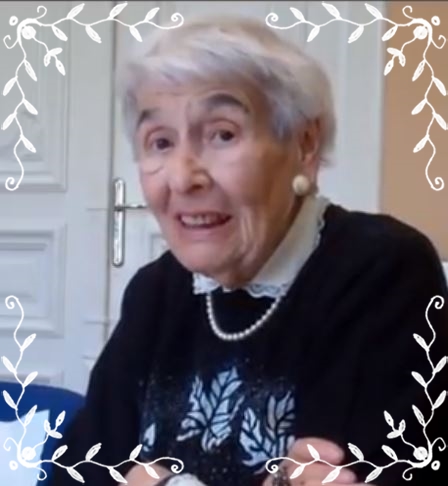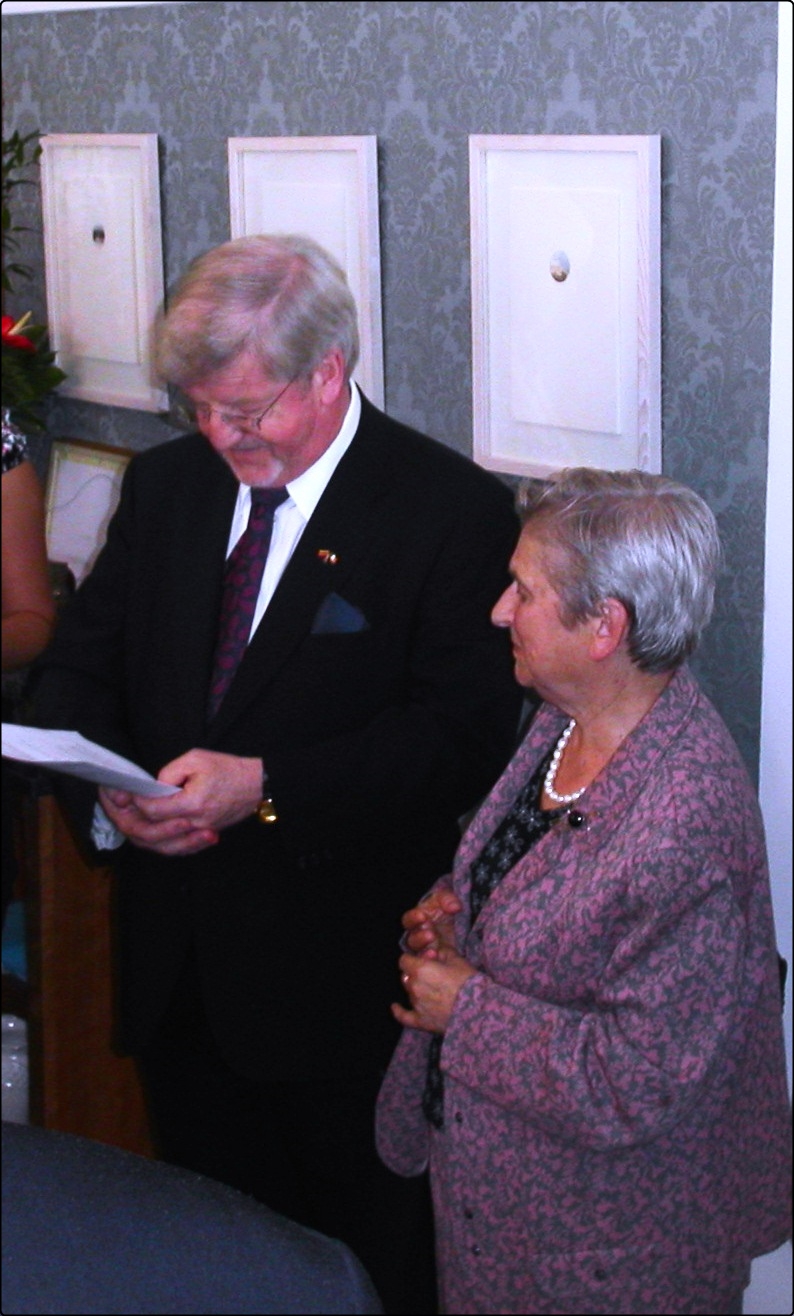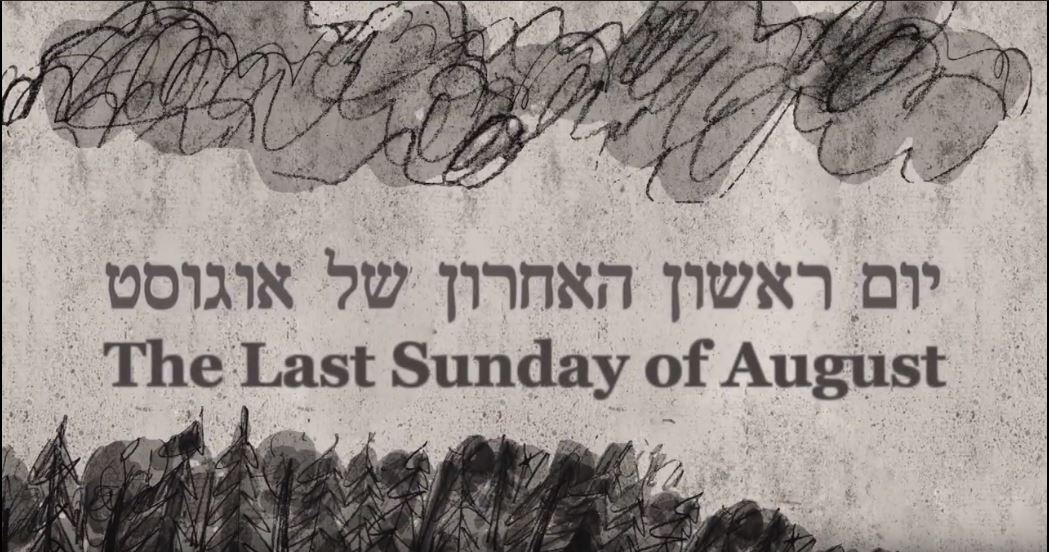PRAGUE PLATFORM | PRAGUE DECLARATION | DOUBLE GENOCIDE | EU
◊
◊
◊
Ukraine’s “pro-Western” president Petro Poroshenko, who in 2014 proclaimed the founding of a Hitlerist fascist group as a national holiday, and in 2015 tweeted photos of himself in a uniform making a joke of fascist leader Stepan Bandera, whose hordes were responsible for the murders of (at least) tens of thousands of Jewish and Polish civilians on the basis of ethnicity, has just “done it again.”
“To be ‘pro-Western’ one must share Western values, not just geopolitical foes.”
—DefendingHistory.com
On Friday, Poroshenko tweeted a photograph which he claimed represented citizens of Western Ukraine being deported to Siberia in 1947. His tweet translates: “Today is the 70th anniversary of mass deportations of populations of western Ukraine to Siberia and northern regions of the former USSR. We remember.”
◊
In a 2012 article in Defending History, I asked why Holocaust perpetrator Jonas Noreika is made into a “national hero” here in Lithuania, one honored by street names and public plaques. Since then protests have come, among others, from a somewhat obscured petition by Lithuanian intellectuals, an appeal from journalist and Declaration of Independence signatory Rimvydas Valatka, Lithuania’s official Jewish community, Grant Gochin, a South African born author resident in the United States, and others. These appeals, all from 2015, were crowned by a rare protest by Jewish students at a Noreika shrine in central Vilnius (see Defending History’s guide for English readers to the links in the 2015 debate).
◊
As reported last week, in connection with a protest from the World Jewish Congress, authorities in Ukraine recently inaugurated a statue to Symon Petliura in the city of Vinnitsa. Petliura (1879—1926) was a Ukrainian whose troops killed tens of thousands of Jewish civilians in a devastating series of pogroms in Ukraine during the Russian Revolution and the civil war that followed it.
◊

Chasia Langbord Shpanerflig. Zhetl (Diatlava) 1921 — Vilnius 2017. Photo © DefendingHistory.com
VILNIUS—At Sabbath services at Vilnius’s Choral Synagogue this morning, word began to spread that Vilnius’s oldest surviving veteran of the Jewish Partisans, Chasia (Khásye) Langbord Shpanerflig, had passed away at the age of 96.
◊
Nearly a decade after  HE Dónal Denham’s 3 June 2008 historic reception for Fania Brantsovsky, a hero of the Holocaust-era anti-Nazi Jewish partisan resistance in Lithuania, held at the Irish Ambassador’s Residence in Vinius, the text of his speech has been released. It appears below. See our report on the June 2008 event. Historical note: Defending History believes it was the first time since collapse of the Soviet Union that Western embassies in one of the new democracies saw a need to honor a person who was being unjustly targeted by state prosecution services and other national elites. The American, Austrian, British, French, German, Norwegian and other embassies followed the Irish lead.
HE Dónal Denham’s 3 June 2008 historic reception for Fania Brantsovsky, a hero of the Holocaust-era anti-Nazi Jewish partisan resistance in Lithuania, held at the Irish Ambassador’s Residence in Vinius, the text of his speech has been released. It appears below. See our report on the June 2008 event. Historical note: Defending History believes it was the first time since collapse of the Soviet Union that Western embassies in one of the new democracies saw a need to honor a person who was being unjustly targeted by state prosecution services and other national elites. The American, Austrian, British, French, German, Norwegian and other embassies followed the Irish lead.
◊
The following press statement appeared on the World Jewish Congress website on 17 October 2017:
NEW YORK—The World Jewish Congress has denounced the Ukrainian city of Vinnitsa’s “disgraceful and deplorable” move to celebrate nationalist leader Symon Petliura, whose Ukrainian People’s Republic killed tens of thousands of Jews in pogroms under his leadership in 1918-1921, and urged the local authorities to pull a monument unveiled over the weekend in his honor.
WJC CEO and Executive Vice President Robert Singer said in a statement:
◊
◊
On March 16, 2017, the annual march honoring Waffen SS Latvian Legion veterans took place in Riga as usual. A co-ruling political party had called the legionnaires “freedom fighters”[1], the Security Police had denounced opponents of the march as “so-called Anti-Fascists” and put them in the chapter “Manifestations of Russia’s compatriot policies in Latvia” of its annual report.[2] The counter-picket applied for by the Latvian Anti-Nazi Committee had been ordered to move farther from the march route. Again, a pretty usual development.
◊
As reported on 7 October, the city of Kalush in Western Ukraine has named a street for Hauptsturmführer Dmitro Paliyiv, a key founder of the Ukrainian Waffen-SS Galizien division. The division enjoyed a visit from Heinrich Himmler during World War II.
15 OCT. UPDATES: JTA report; ALSO: Up to 20,000 participated in annual October 14th Kiev march to glorify the fascist UPA; Nazi salutes reported by Radio Free Europe
◊
During the last two years a notable number of streets in Ukraine have been named after World War Two-era Ukrainian nationalists who collaborated with the Nazis and were involved in the Holocaust as well as the mass ethnic cleansing of Poles in Western Ukraine. Josh Cohen explained in a recent Reuters column that it is part of Ukraine’s post-Maidan Government attempt to create a new national memory for Ukraine:
In 2015, Ukraine passed a law honoring the Organization of Ukrainian Nationalists and its military wing, the Ukrainian Insurgent Army (OUN-UPA). Since then, other streets have been named after the group and its leaders, and the Ukrainian Institute of National Memory (UINM) is drafting a law to posthumously exonerate OUN-UPA members convicted of murdering Polish and Jewish civilians during and after the war.
VILNIUS—In comments reported today by the Lithuanian press service ELTA, the nation’s prime minister, Saulius Skvernelis has announced and hailed the decision to proceed with a national convention center in the heart of the old Vilna Jewish cemetery as one that “will lift the Lithuanian capital to a higher level of competitiveness in tourism.” He also notes that “the lack of a modern congress center in Vilnius is the main obstacle for the development of conference tourism in Lithuania,” not mentioning that there are numerous alternative sites for much more rapid and hassle-free construction of such a center.
◊
◊
◊
What makes Rūta Vanagaitė’s Ours (Mūsiškiai) very different from all other Lithuanian books on the Holocaust is that it was from the start written as a bestseller. Written by an experienced public relations professional as an appeal to the Lithuanian public, the book raises the painful issue of historical responsibility. The author does not refrain from giving a personal twist to the story (it would be impossible otherwise, as the Holocaust is an issue of individual position and individual responsibility). The author is piercingly direct and uses black comedy. She approaches the topic with composure and a sense of supremacy. These two features may irritate the reader. However, she is entitled to it as she aims to confront the reader, which she so eloquently achieves.
◊
◊
One does not have to be a theoretical champion of Free Enterprise vs. Government Intervention to take stock of this week’s incredible contrast between the two major products of this last week in September, the annual week of intensive Jewish commemoration activity in Lithuania, and particularly, in its fabled capital, Vilnius. By “products” we mean things of substantive physicality that will outlive by far the week’s posturing, speeches, and meetings with glittering public officials and national leaders.
◊
◊
◊
Evolution of Self-Identity in the Intercultural Debate on Whether to Restore Vilnius’s Oldest Jewish Cemetery. My name is Andrius Kulikauskas of Vilnius Gediminas Technical University in Lithuania. I will be speaking about a question important to me, How do things come to matter? and I will relate it to the topic of Lithuanian Jewish heritage: The Evolution of Self-Identity in the Intercultural Debate on Whether to Restore Vilnius’s Oldest Jewish Cemetery. So I am very grateful to the organizers and to our last speaker for having a very much related topic and I’ll be focusing on my own philosophical question but as a citizen of Lithuania I am very glad to be able to think about this very concrete issue. In our case, the cemetery is from the 1500s. As you know, the Grand Duchy of Lithuania had fantastic relations with Jews up until the Holocaust when Lithuania was I think the first place where all of the Jews were killed, in our countryside in 1941 even before the Wansee conference.
◊

◊
◊
◊
Methods of authoritarian and obtuse governance, evident for many years in the management of the Lithuanian Jewish Community (LJC), have recently reached the public sphere. Despite the fierce resistance and brutal interference of the chairwoman of the LJC (and, until recently, of the Vilnius Jewish Community, too) Faina Kukliansky, the Vilnius Jewish Community (VJC) [on 24 May 2017] organized a general conference of Vilnius Jews according to all legal procedures — with, incidentally, record-high attendance — and elected its new council [of 21 members] democratically. But the notion that Jewish people solve their problems in a wise manner, although prevalent in society, demonstrably did not take root in this case. As a former deputy chairman of the LJC (2000–2005), I feel an obligation to share my thoughts on why this has happened. It seems to me that I have a moral right to share these thoughts.
In April of 2016, the Vilnius City Municipality announced the launching of its Roma Integration Program, or “Vilnius (Kirtimai) Roma Tabor Community Social Integration Program for 2016-2019.” The municipality’s plans were widely discussed in the media, which in its own turn, came up with sensational headlines like “Program of Roma Integration and Tabor Eradication To Be Approved.” A curious fact: Roma representatives did not take part in the negotiation process for this major 700,000 euro project. They were not invited to even observe a single meeting. As ever, Roma are being “integrated” behind their own backs.
◊
VILNIUS—Beware of any academic conference hosted by a nation’s parliament. This isn’t about Lithuania, the Baltics, or Eastern Europe. It’s about the intellectual independence and academic integrity of bona fide academic conclaves anywhere. There are elementary questions. Was there a public call for papers? Was there an academic committee established to select those papers by the most competent specialists on the actual topic of the conference? An academic committee that would guard against the petty jealousies, politics of revenge and personal exclusions, as well as larger political correctnesses or state-sponsored-agency attempts to predetermine the proceedings or (ab)use them for governmental PR? Is the conference a free tribune for the exchange of ideas in an atmosphere of collegiality and mutual respect? One where scholars of opposing views can thrash it out, robustly and publicly — without the loss of interpersonal respect — to yield positive results for the area of human enquiry to which the conference was dedicated in the first place. One of the ironies is that Vilnius is nowadays host to some of the world’s best (and most academically free) conferences in an array of fields, both in the humanities and the sciences. That Soviet-style rigging should survive in the case of Judaic studies, of all things, will itself be studied one day.